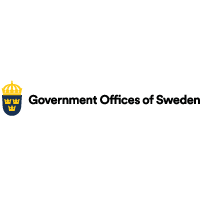
Excellencies, Ladies and Gentlemen,
Let me commence by thanking
- the Academy of Finland, and
- the Erik Castrén Institute of International Law and Human Rights in cooperation with the Open Government in the EU Blog
for organizing this webinar, reminding us of the importance of transparency by creating public access to documents as a contribution to democracy and transparency. Today’s discussions have, I am sure, provided necessary food for thought regarding a few of the important challenges that need to be addressed when taking stock and looking ahead regarding Regulation 1049/2001 on public access to EU documents.
I don’t need to go into any particular detail before this audience – and in this country – why public access to documents is important. It is a question of the right to know and the possibility to scrutinize – one fundamental right and one essential possibility.
In a democracy, the public power proceeds from the people and require the trust of people. Public powers must be exercised in such a way that citizens keep their faith. That applies not only for politicians, but is also true when it comes to fundamental institutions and civil servants. People’s faith and respect for those who exercise public power is a necessary condition for legitimacy, a cornerstone in any well-functioning society.
The citizen’s right to ask for, and receive, information is – to my mind – absolutely crucial in this respect. Public access enables the citizens to exercise control over the administration, without being dependent on personal connections or private economical resources. If not, we will rapidly undermine citizens trust and confidence, and open the doors for undemocratic ideas and powers. There is also a clear link between a high degree of transparency and a low level of corruption, as it increases the detection rate of corrupt practices. The Finnish Presidency put this issue on the agenda in an exemplary manner. It is something we could be inspired by.
To achieve trust is truly a challenge for a union with approximately 450 million citizens in 27 Member States. With that said, I truly believe that access to information is the key to a true democracy. Again, for that we need proper and functional tools for democracy: openness, transparency, public access to documents.
It has now been twenty years since the first Swedish Presidency. Sweden and Finland had joined the union only a few years earlier. We are still very proud that the negotiations on Regulation 1049 went well. It was not an easy task for Helena Jäderblom, nowadays Justice and President of the Supreme Administrative Court of Sweden, with colleagues. Since then, I dare say that there has been somewhat of a climate change – of a positive kind – within the EU institutions when it comes to openness towards the citizens and public access to documents.
In our opinion, Regulation 1049 is absolutely central to the citizens’ opportunity to receive information about what the EU is doing and to actively participate in the democratic process. We can easily state that the regulation has contributed to a significantly more open EU.
It could be argued, overall, that Regulation 1049 has worked remarkably well. Currently, a complete overhaul does not seem necessary. It is important to note that possible amendments of the Regulation may go in both directions. If there is no majority for transparency, amendments risk leading to reduced transparency. Such solutions would entail an unacceptable loss of transparency!
It is worrying that there are forces that seemingly want to reduce transparency. The Lisbon Treaty clearly demands more transparency in the EU, and especially so in legislative procedures. It seems urgent to make the uncontroversial amendments due to the Lisbon Treaty. Those adjustments, which would make the transparency regulation applicable to all EU organs, would increase both transparency and legal clarity.
In a modern democracy, proposals that undermine transparency lead in the wrong direction. Any change of the Regulation must follow simple and obvious rules: increased openness, transparency and access – better outreach, understanding and legitimacy. That is what citizens have the right to demand and what the EU has a duty to deliver.
***
Ladies and gentlemen,
I am looking forward to the years to come, and to see what can be accomplished when EU Member States work together. We always benefit from discussions and openness. And with “we” I mean both institutions and citizens. So this webinar is tremendously important – and I agree with minister Anna-Maja Henriksson that it is an excellent example of Nordic co-operation!
It is more crucial than ever that we do not lose momentum but that we continue to strive to ensure that the right to know and the possibility to scrutinize is not restricted, applied incorrectly or falls into oblivion. We want a Union which is truly transparent and accessible. Public access to official documents is one of our most important tools to achieve that. Regulation 1049 has definitely proven its value.
Transparency in the EU is a very important issue for Sweden. I feel optimistic knowing that everyone’s openness-oriented work has an impact.
I hope that the coming years will prove to be an inspiring and encouraging journey, for us as persons, as policy makers or practitioners, and for the EU.
Thank you.